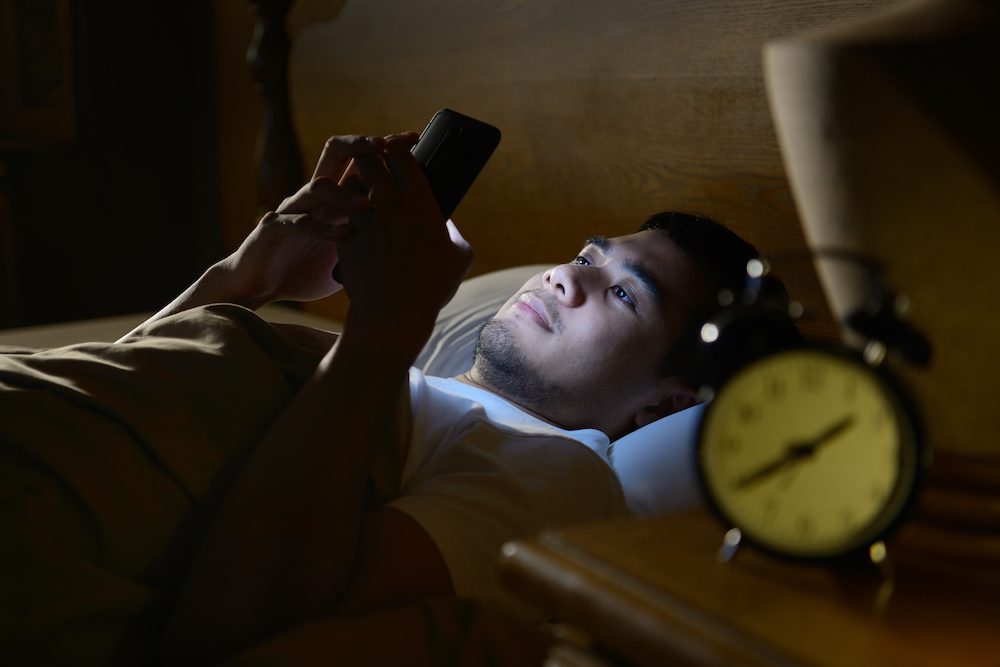Whether it’s for work, school, or a morning trip to the airport, there are many times when it’s important to wake up early. For some, waking up early is a part of their natural sleep patterns. But for others, waking up early may feel close to impossible.
Fortunately, there are several research-based strategies to make waking up early a little easier.
Top 4 Tips to Change Your Sleep Schedule

- 1 Learn about your chronotype and change your routines to accommodate it.
- 2 Timed exercise and exposure to bright light can help reset your sleep-wake cycle.
- 3 Allow at least a week to adjust to a new sleep schedule and gradually make changes each day.
- 4 Fall asleep faster by making your bedroom distraction-free and improving sleep hygiene.
Circadian rhythms control our sleep-wake schedules, but they are easily disrupted by travel, work, and even household lights.
Tricks to Help You Wake Up Early
If you need to get out of bed earlier than usual, setting an alarm clock may be enough to help you wake up. But if you’re trying to wake up early on a regular basis, you may need to be more intentional about shifting your sleep schedule.
Shifting your sleep and wake times is a process, and it can take time for your body to adjust. To ease the adjustment, consider trying several strategies to help you wake up earlier.
Learn About Your Chronotype
Understanding your chronotype can help you make sense of your natural tendency to wake up early or sleep late into the day.
Your chronotype is your natural preference for being awake or asleep at certain times of the day. This preference is related to your circadian rhythms. Circadian rhythms are near-24-hour internal cycles that control many processes in the body, from your sleep patterns to when hormones are released.
Your body uses environmental cues such as light and darkness to synchronize your circadian rhythms. Although getting up early can be difficult if you have an evening chronotype, adjusting the time of certain activities can help you shift your circadian rhythms and wake up earlier in the morning.
Time Your Light Exposure
Light is one of the strongest factors affecting the timing of your circadian rhythms. Your brain uses light to determine the time of day and whether it’s time to wake up or prepare for sleep. Properly timed exposure to light can help you change your sleep patterns by shifting your circadian rhythms forward or backward.
To advance your circadian rhythms and wake up earlier, try to get bright light when you’re waking up or, even better, before you need to be awake. Consider setting a timed light to come on 15 to 30 minutes before your alarm clock or moving your bed to a spot that allows you to take in the morning sun as you wake up.
To help you go to sleep earlier, limit your exposure to bright lights in the evening. Too much light around bedtime can delay your circadian rhythms, making it harder to fall asleep and wake up on time.
Exercise at the Right Time
Physical activity also affects your circadian rhythms. Getting at least 30 minutes of exercise each day may help you sleep better. Some research suggests that morning exercise might even help you adjust to an earlier sleep schedule. Early morning workouts under bright light may be especially effective.
Change Your Habits Gradually
Adopting a new sleep schedule can be challenging, especially if you have maintained the same sleep habits for a long time. Make sure to give yourself a week or more to adapt to changes in your sleep schedule.
If your schedule allows, try to gradually shift your wake-up time. Start by getting up one hour before your typical wake time, then adjust by another hour the following day. If you are still struggling, try adjusting your wake-up times in smaller increments, perhaps 15 minutes earlier each day until you reach your desired wake time.
Improve Your Sleep Hygiene
Sleep hygiene is a term that refers to positive sleep habits. Improving your sleep hygiene can help you rest better at night and wake up feeling alert and refreshed in the morning.
- Give Yourself Time to Sleep: Make sure you have enough time to sleep before waking up early, but not too much time. Avoid going to bed more than eight hours before you plan to wake up.
- Skip the Stimulants: Caffeine, nicotine, and other stimulants can keep you up at night, with caffeine’s effects lasting for up to eight hours. Avoid using caffeine and other stimulants from the afternoon on, or even earlier in the day if you are particularly sensitive to their effects.
- Create a Relaxing Sleep Environment: To help you fall asleep early, make your bedroom a distraction-free place that encourages rest and relaxation. Block out unnecessary noise and light and maintain a comfortable room temperature. Put away electronic devices that emit sleep-disrupting blue light.
- Maintain a Routine: Create a bedtime routine that helps you wind down. Set aside enough time to unwind and try reading, listening to soothing music, or focusing on a relaxing hobby.
Trouble Sleeping?
We can help. Tell us about your sleep to get a free Sleep Doctor score with recommendations for better sleep.
Why You May Struggle to Wake Up Early
There are many reasons why you might have trouble waking up early, including your chronotype, lifestyle factors, and sleep disorders. Before you try to change your sleep patterns, consider the reasons why you struggle to get up early.
Having an Evening Chronotype
While people with morning chronotypes are at their best first thing in the morning, others prefer to sleep in and stay up late. Those with evening chronotypes function best in the afternoon and evening and may have trouble waking up early.
A person’s preference for early mornings or late nights is also affected by their age. Hormonal changes around puberty affect sleep patterns, leading teenagers to have a natural tendency to stay up late and sleep in during the morning.
Sleeping In on the Weekends
Staying up late on Friday night and sleeping in on the weekends can disrupt your circadian rhythms and make it difficult to wake up early during the week.
To maintain an earlier wake-up time during the week, try to go to bed and wake up at the same times every day, even on weekends, holidays, and vacations. If you decide to sleep in on the weekend, don’t stay in bed more than an hour after your usual wake-up time.

Sleep Disorders
Having trouble waking up earlier can also be related to an undiagnosed sleep disorder. Sleep disorders are conditions that cause sleep difficulties and affect a person’s functioning during the day.
Some sleep disorders make waking up difficult because they affect circadian rhythms. These disorders can occur when a person’s schedule directly conflicts with their circadian rhythms. Other times, circadian rhythms themselves may become abnormal.
Teenagers, who often have evening chronotypes, can develop a sleep disorder called delayed sleep-wake phase disorder. People with this sleep disorder have trouble falling asleep and waking up at the appropriate times. When they do wake up, they often experience sleep inertia, or grogginess and disorientation.
In addition to delayed sleep-wake phase disorder, several sleep disorders directly affect circadian rhythms.
- Advanced Sleep-Wake Phase Disorder: This condition often develops as people get older. It causes individuals to feel sleepy earlier in the day. They often wake up too early and have trouble going back to sleep.
- Irregular Sleep-Wake Rhythm Disorder: People with this disorder do not have set sleep-wake patterns. Instead, they feel tired or alert at various times throughout the day.
- Non-24-Hour Sleep-Wake Rhythm Disorder: In this condition, the circadian rhythms become disrupted when they cannot synchronize with environmental patterns of light and darkness. Most people with this disorder are blind.
- Jet Lag Disorder: People who pass through multiple time zones when they travel may experience jet lag. Because circadian rhythms take time to adjust to a new environment, this temporary condition causes daytime sleepiness, difficulty falling asleep or waking at the desired time, and an overall unpleasant feeling.
- Shift Work Disorder: People who work rotating shifts, night shifts, or for very long stretches of time often experience sleep disruptions because their circadian rhythms conflict with their work schedules. They may struggle to wake up, fall asleep, or get less rest overall.
Other sleep disorders do not directly impact circadian rhythms, but they may still make it hard to wake up early. Some of these conditions prevent a person from getting sufficient quality sleep. Others may cause excessive morning or daytime sleepiness.
- Obstructive sleep apnea
- Narcolepsy
- Kleine-Levin syndrome
- Sleep-related movement disorders
- Insomnia
When to See a Doctor
If you continue to have trouble waking up early after making changes to your schedule and lifestyle, consider talking to a health care professional. They can address your concerns and offer personalized advice on how to wake up earlier.
Keeping a sleep diary can give your doctor a better idea of your habits. A sleep diary is a log for keeping track of several weeks’ worth of sleep patterns, including wake-up times, bedtimes, naps, and time spent in bed.
References
Ask the Sleep Doctor
Have questions about sleep? Submit them here! We use your questions to help us decide topics for articles, videos, and newsletters. We try to answer as many questions as possible. You can also send us an email. Please note, we cannot provide specific medical advice, and always recommend you contact your doctor for any medical matters.




